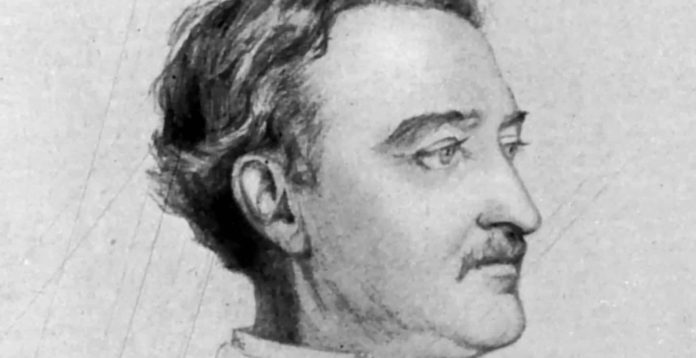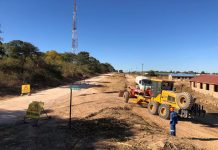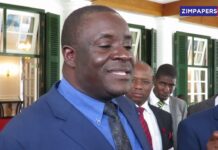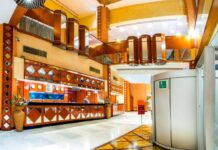Corruption is old in Zimbabwe, with Cecil John Rhodes being the father. He bought a lot of people from dukes needed as high-end front men, through colonial governors down to quite ordinary but important critics and others who could put a spanner in his schemes.
He always believed, with good reason, that every man had his price (he had no business dealings with women) and that it was easier to buy someone than fight them.
And his corruption was meant to benefit Cecil Rhodes and his immediate cronies, not the British Empire or the settlers he flung north or anyone else. He did not indulge in corruption for altruistic means but to gain wealth and power. His contemporaries had an inkling of his activities. He lived and died Mister Rhodes, never Sir Cecil let alone Lord Rhodes or the Earl of Bulawayo. Yet other “empire builders” with less to offer managed to collect the titles.
His corruption started in Kimberley in the earlier days of the diamond minng when Rhodes had only very modest holdings. He gained the contract to keep the De Beers mine drained. His engine broke down and his new one was somewhere in a ship. The many claim holders in De Beers put together a temporary arrangement with another pump, and it worked well and cost less. Then it broke down, due to sabotage, and the technician running it claimed he had done the sabotage on payment of 300 pounds by Cecil Rhodes. Some fast legal footwork, to delay and derail the investigation, kept Rhodes off the hook. But Sir Sidney Shippard, an important civil servant in time, went on the payroll.
Rhodes’ business interests grew, more by sharp practice than corruption, but the next definite corrupt activity was the 1883 smallpox epidemic, when Rhodes bought off all the Kimberley doctors to declare the epidemic was another non-dangerous disease. So there was no mass vaccination and a lot of people died. He was frightened people would avoid Kimberley if they knew the truth. No one knows how much he paid the doctors, who included his later friend and sidekick Leander Star Jameson.
His machinations in what is now Zimbabwe are well known, with missionary interpreters in Bulawayo bought off (cheaply for 200 pounds) and the High Commissioner and Governor of the Cape Colony, Sir Hercules Robinson, fairly obviously going on the payroll. What is less well known is that the deals he was making had zero to do with the British South Africa Company. Rather he and his tools were acting for themselves. He got his spurious concession granting the mineral rights of Matabeleland and Mashonaland thanks to some very dodgy interpreting first assigning it to Gold Fields, then to the new Central Search Agency.
Now he started buying. First he had to make a deal with George Cawston, a dubious City of London financier whose front man was the third Lord Gifford VC. Their Bechuanaland Exploring and Exploitation Company had some valuable claims. So they were cut in by Rhodes and it was agreed that they would be on the board of the future charter company.
British politics was important. There were the two great parties, the Tories and the Liberals, but with the Irish Home Rule party in third place and able to put a spanner in the works. The Irishmen were bought off with 10 000 pounds.
For the two big parties Rhodes thought that having a pair of dukes would add tone to his venture, and dukes then needed a lot of money. The Marques of Salisbury, on retirement as Prime Minister, turned down the upgrade to duke he was entitled to because he “could not afford” the lifestyle. Later King George V’s cousin, Admiral of the Fleet Prince Louis of Battenberg, turned down a dukedom when converting himself to the head of the English Mountbattens because he “could not afford” the lifestyle.
For his Conservative duke, Rhodes picked the second Duke of Abercorn. He would not have been too pricey as he was an Irish duke, although he had a lower UK title that gave him a seat in the House of Lords. That duke became President of the British South Africa Company although it is unlikely he ever looked at an atlas to see what he was president of. There was a block of BSAC shares and probably some cash.
For Vice-President, Rhodes really lashed out. Alexander William George Duff, first Duke of Fife, was probably his most expensive purchase but he brought three expensive attributes. First he was a leading Liberal peer. He had started off as Earl Fife, an Irish title, upgraded to the UK title of Earl of Fife, so was in the House of Lords, and then married the Princess Louise of Wales, eldest daughter of the Prince of Wales (later Edward VII) and her granny, Queen Victoria, thought it would be nicer if the future Princess Royal was a duchess not a countess so upgraded her grandson in law. So Rhodes had a Liberal leader married to a future senior member of the Royal Family.
But he got more for whatever he paid. Fife was also a leading light of the South Africa Committee, a very influential group set up to stop people like Rhodes exploiting the indigenous inhabitants of Africa. So he would have been expensive. There was the usual block of shares, but the duke besides his inherited land holdings also became a partner in a very profitable private bank; this was okay as he never actually sat in an office sorting out finances, just collected big profits each year. While the claim was that he sold some land to buy the partnership, it must be suspected that “someone” helped. The bank he chose, incidentally, already had one of Cawston’s cronies as a partner, another strong hint.
The South Africa Committee was important. So more members were bought. Charles Grey was heir of the Earl Grey, but not a descendant. So he would have needed cash to go with his title. And he was a Liberal politician so a useful purchase. He also went on the board of the BSA Company, joining the two dukes as the leading front, with perhaps Gifford counting as well. The other four were Rhodes and his sidekick Alfred Beit, and Cawston and his sidekick Horace Farquhar. Those four ran the show. The four, expensive, peers were the window dressing.
- W. Thompson on the South Africa Committee was secretary of the London Missionary Society and seems to have been bought off by a promise of support in Matabeleland.
The crusading journalist, W. T. Stead, who had exposed a lot of Victorian corruption and child prostitution, eventually sold himself for 22 000 pounds, although Rhodes also seduced him with his proclaimed idealism, getting a convert as well as a purchase.
The Scottish missionaries in Malawi, through their Africa Lakes Company, were bought for 9 000 pounds a year.
One of the saddest purchases was of Frederick Courtney Selous, who actually knew the country and knew that Rhodes’s mineral rights were spurious (Shona chiefs actually controlled most of the territory), was fluent in a number of local languages and got on very well with many communities across Southern Africa. In fact if only 10 percent of the rumours of his girl friends were true, then perhaps “exceptionally well” would be a better description. He was liked and trusted.
He sold himself for 2000 pounds, 100 De Beers shares, 21 000 acres of Mashonaland and a salary of 45 shillings a day to be advisor and guide.
There was much more corruption of course, but that horrific list (Victorian pounds were worth almost 50 of modern pounds, shows just how appalling a start Rhodes gave the colonial entity that became Zimbabwe.















